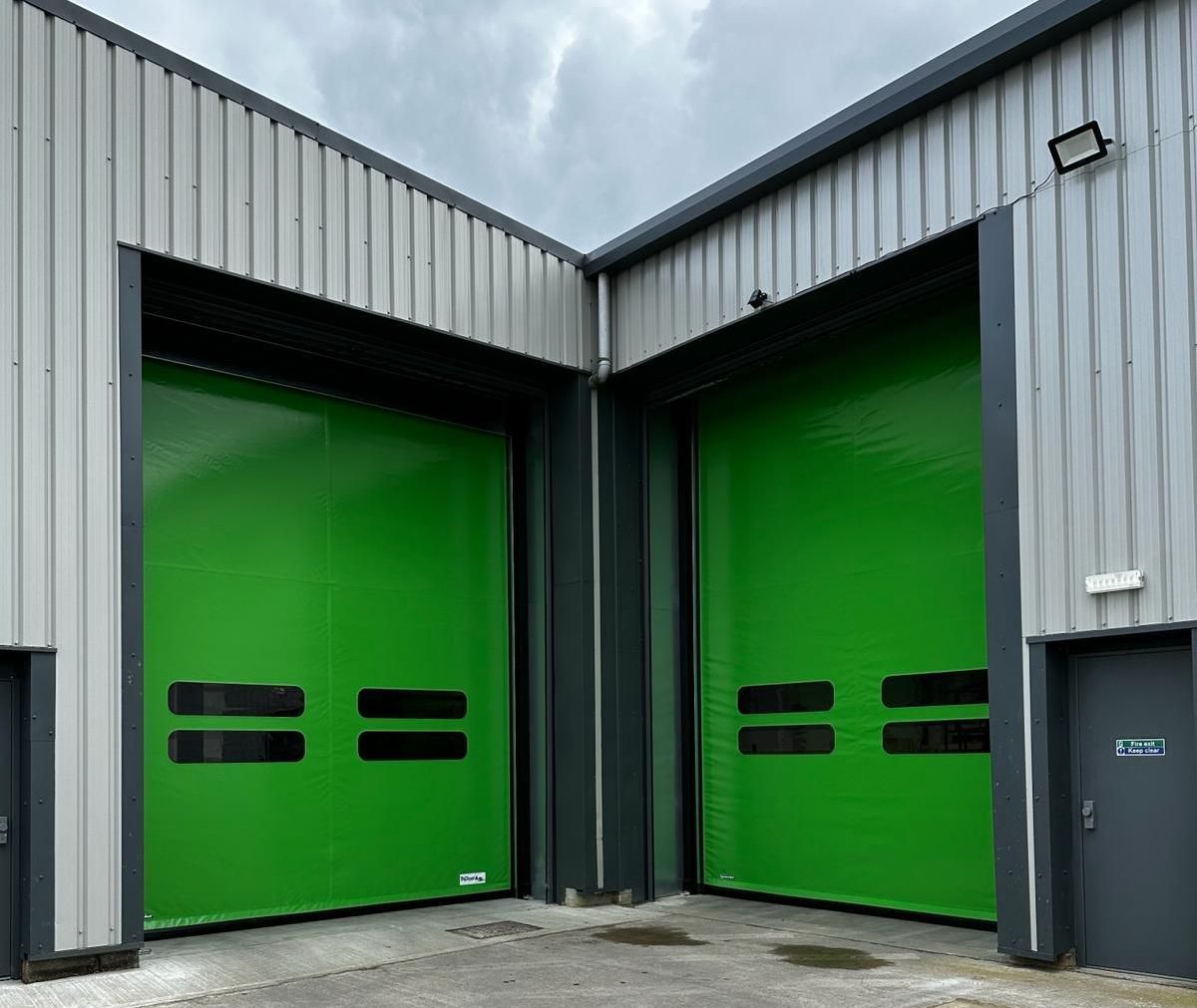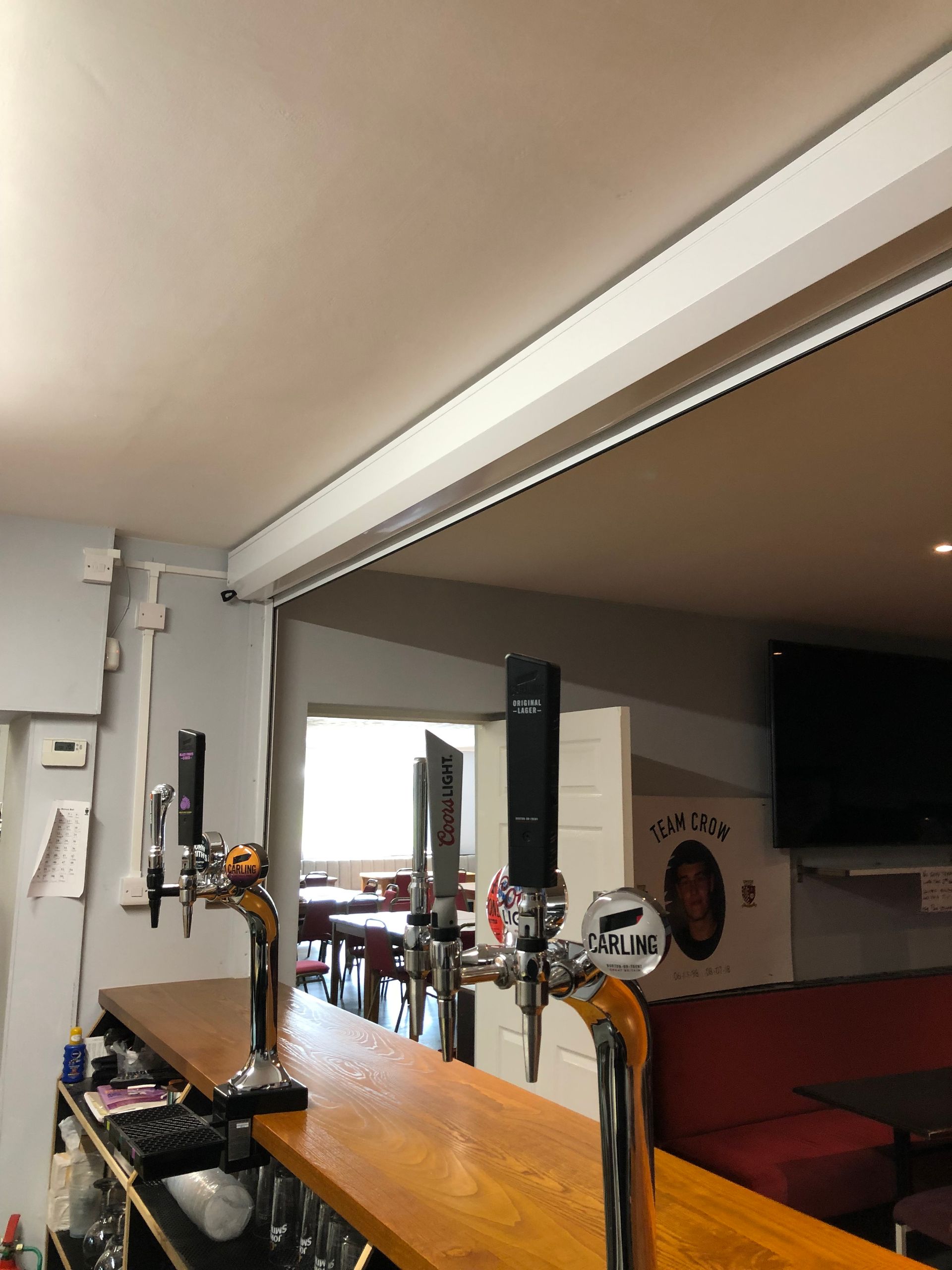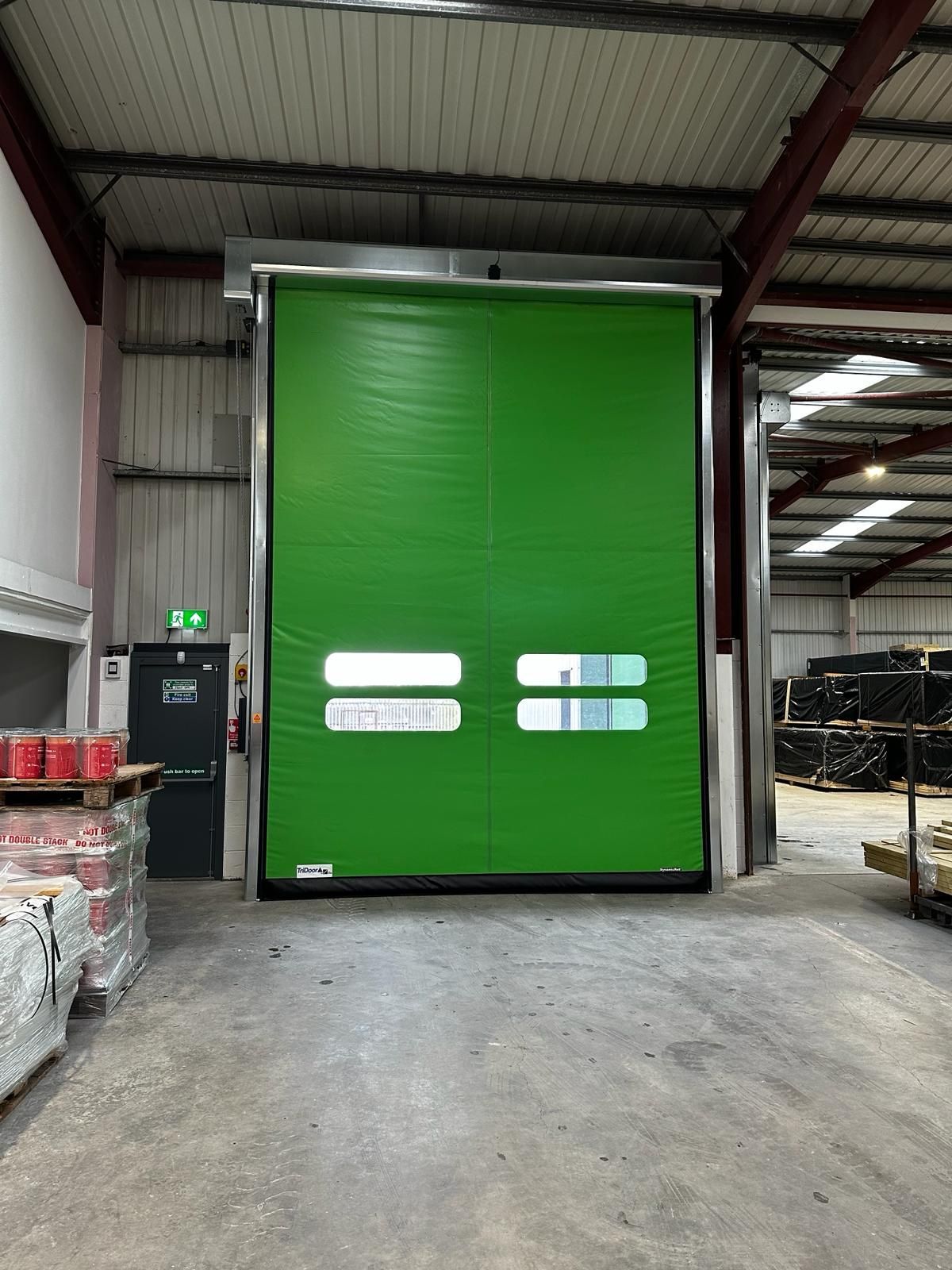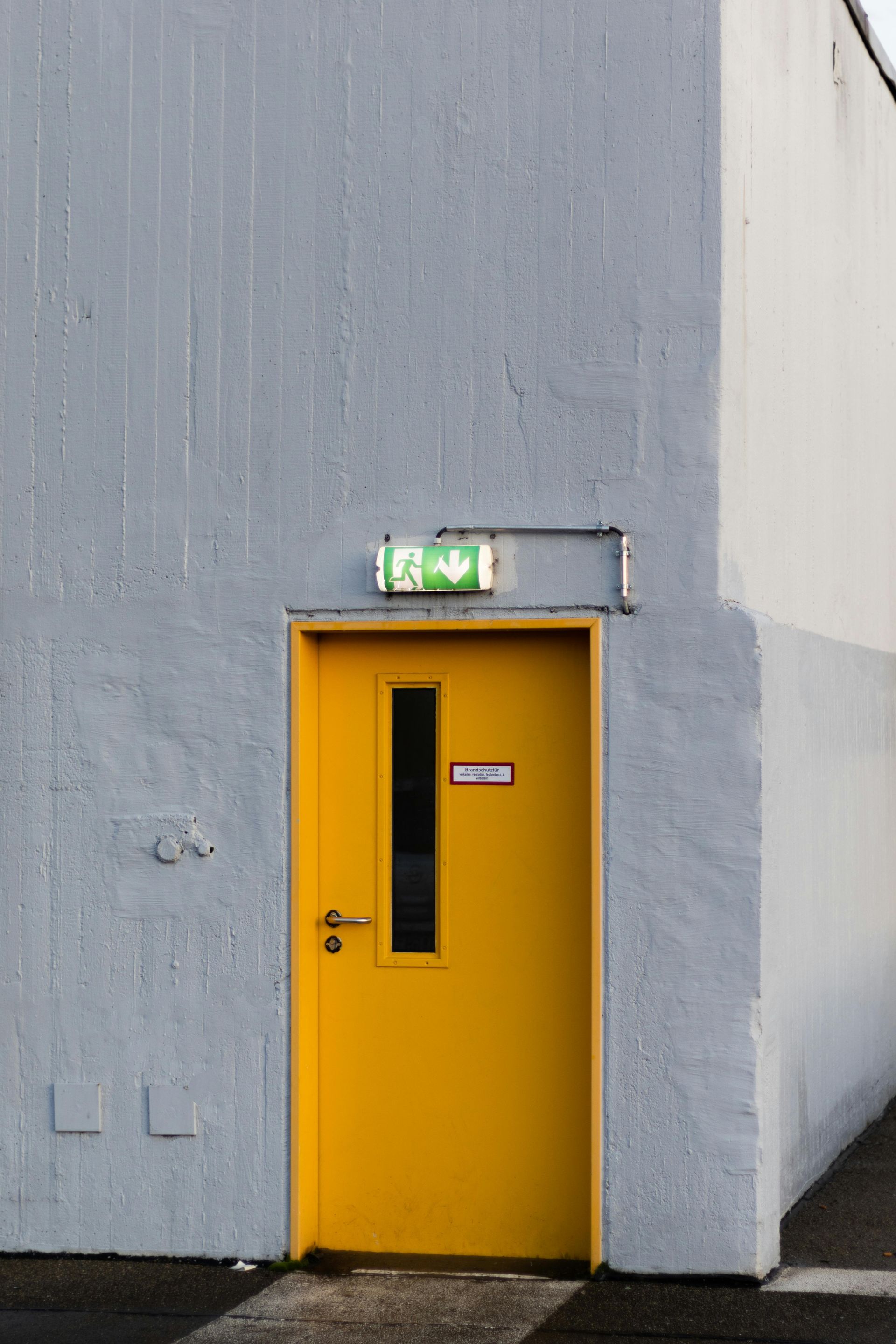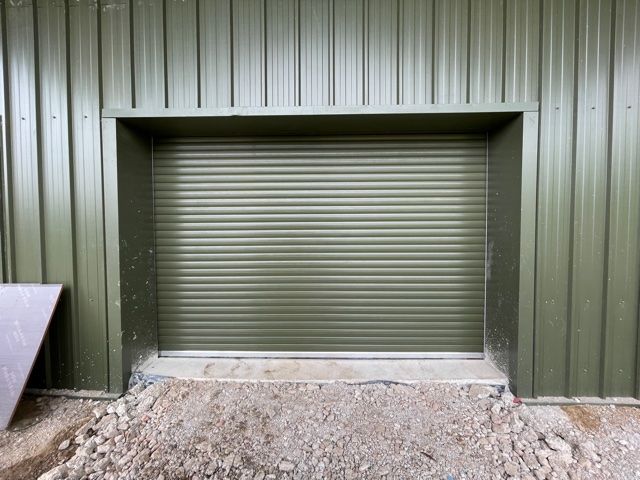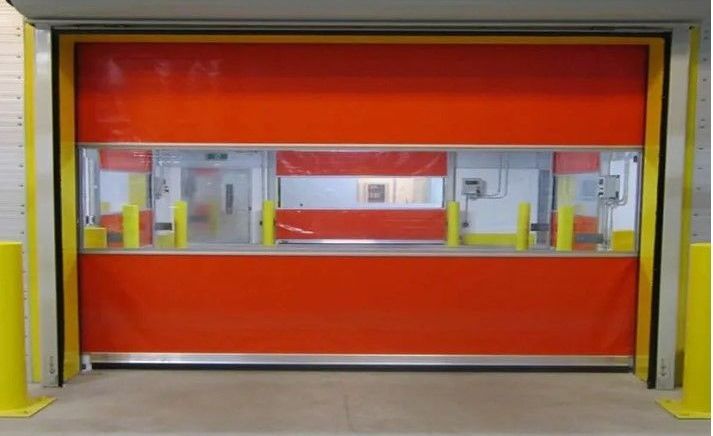Why Regular Industrial Door Servicing Is Critical for Business Operations
Industrial doors do far more than open and close; they safeguard stock, control energy loss and protect staff. Yet they’re often ignored, until a jammed roller shutter halts production or a failed fire door
breaches compliance.
Proactive industrial door servicing turns these potential crises into routine, low‑cost maintenance tasks, protecting productivity and people alike.
Introduction
From distribution centres to food‑processing plants, industrial doors are mission‑critical. They regulate workflow, keep environments secure and help businesses meet health‑and‑safety targets.
When a door fails, the ripple effects include:
● Downtime – stalled forklifts, missed dispatch slots, overtime costs
● Asset damage – warped tracks, torn curtains, dented panels
● Safety risks – trapped personnel, blocked fire‑escape routes
● Compliance exposure – insurance disputes, HSE penaltiesRegular industrial door servicing is a modest investment compared with these hidden costs.
What Is Industrial Door Servicing?
A professional maintenance visit typically includes:
1. Inspection – checking panels, tracks, springs, safety edges and control gear for wear or misalignment.
2. Lubrication – applying specialist greases to rollers, hinges and bearings to minimise friction.
3. Safety checks – testing photo‑cells, emergency release systems, fall‑arrest devices and fire‑door closers.
4. Replacement of worn parts – swapping cables, seals or weather strips before they fail.
Doors That Require Routine Attention
● Roller shutters – heavy‑duty curtains and barrel assemblies need tension and balance checks.
● High‑speed doors – rapid cycles demand frequent sensor calibration and curtain inspection.
● Fire‑rated doors – legally mandated fire door compliance inspections verify integrity and automatic closing.
● Sectional overheads, dock levellers and steel security doors – each has unique service points that keep them running smoothly.
Key Benefits of Regular Servicing
Enhanced Operational Safety
A well‑maintained door closes fully, detects obstructions and disengages safely in an emergency. This reduces the risk of crush injuries and ensures evacuation routes remain clear.
Prevention of Unexpected BreakdownsRoutine door maintenance identifies frayed cables or misaligned tracks before they snap or
jam, avoiding unplanned stoppages and expensive call‑outs.
Prolonged Equipment Lifespan
Just as regular oil changes protect an engine, scheduled lubrication and component replacement extend a door’s working life, delaying capital expenditure on replacements.
Legal Compliance
Fire‑rated doors must meet BS EN 16034 standards and be inspected at least annually. Planned servicing produces a clear industrial door inspection record for auditors, insurers and the HSE.
Why Choose Tridoor for Servicing?Certified Engineers & Fast Response
Our technicians hold DHF and Gate Safe accreditation, arriving in fully stocked vans to resolve 90 % of faults on the first visit.
Competitive Maintenance Plans
Whether you need a one‑off roller shutter repair or a multi‑site contract, we offer flexible packages that include priority call‑outs and discounted parts.
Nationwide Coverage & Multi‑Door Expertise
From high‑speed clean‑room doors to cold‑store sliding panels, Tridoor services every brand and model, ideal for facilities with mixed assets.
Robust Record‑Keeping
We supply digital service logs, risk assessments and fire‑door certificates, valuable evidence for insurers and compliance officers.
Frequently Asked Questions
Do I need servicing if my doors are under warranty?
Yes. Manufacturer warranties often stipulate professional maintenance to remain valid.
Can servicing be done outside production hours?
Absolutely. Tridoor schedules visits during shift changes, evenings or weekends to minimise
disruption.
What happens if engineers find a serious fault?
We’ll issue a safety advisory, quote for immediate repair and, if necessary, isolate the door until
it’s safe, protecting staff and assets.
Conclusion
Industrial doors are frontline assets—guarding stock, streamlining logistics and ensuring fire safety. Neglecting them invites breakdowns, compliance breaches and costly downtime. Regular industrial door servicing is therefore essential, not optional.
Ready to safeguard your operation?
Book a one‑off inspection or enrol in a planned maintenance schedule today. Contact Tridoor to keep your doors, and your business,moving smoothly.
